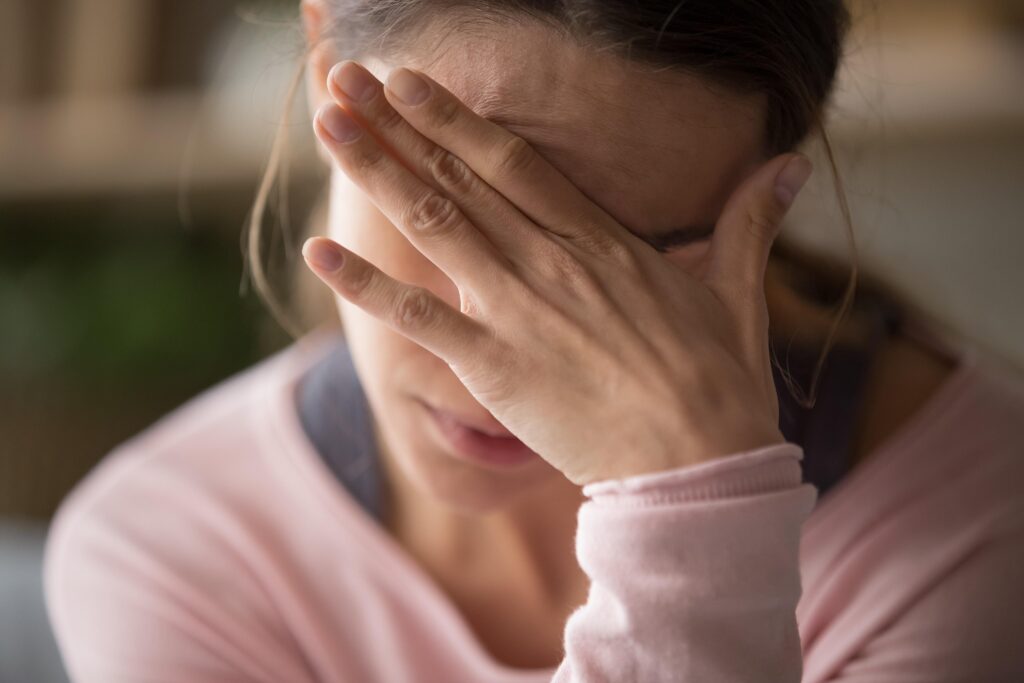By Rishi Khatri
Anxiety is an invisible monster that leaves most people feeling helpless and alone. It’s one of those things that you either understand or you don’t, and most people don’t. Even those who do understand it might not know the extent to which it can impact your life.
In today’s day and age with high prices, politic news with Biden, Desantis, and Trump, news about billionaires like Elon Musk buying Twitter and laying off people, climate change news etc., it’s easy to see why anxiety can creep up.
This article covers everything you need to know about anxiety and how you can manage it through intensive outpatient programs (IOPs). Let’s dive in.
What is Anxiety?
Anxiety is a generalized feeling of worry, uneasiness, or nervousness. It is a natural human emotion that can arise in any situation — good or bad. However, when anxiety becomes overwhelming, uncontrollable, and interferes with your daily life, it can be diagnosed as an anxiety disorder. There are a variety of anxiety disorders, but the most common are generalized anxiety disorder (GAD), social anxiety disorder, panic disorder, obsessive-compulsive disorder (OCD), post-traumatic stress disorder (PTSD), and specific phobias. Anxiety is also a common side effect of certain mental illnesses, medical conditions, and medications.
Symptoms of Anxiety
Anxiety is hard to describe because everyone experiences it differently. These are some common symptoms of anxiety that you may be experiencing if you have anxiety.
– Rapid heartbeat or palpitations
– Sweating
– Shortness of breath
– Trembling or shaking
– Insomnia
– Feeling irritable or tense
– Nausea
– Headaches
– Muscle aches
– Feeling restless
– Racing thoughts
– Feeling like you are going crazy
– Anxious dreams
– Feeling detached from reality
– Inability to concentrate
– Feeling like you have to go to the bathroom
– Nervous tics
– Difficulty trusting others
– Self-harm
– Intrusive thoughts
– Disassociation
– Vomiting
– Paranoia
How to Treat Anxiety
As with any mental illness, there is no one-size-fits-all treatment for anxiety. The best way to treat anxiety is to first understand it, then find out what’s causing it in your specific situation. Once you’ve determined the cause, you can work towards finding a solution. Here are some general suggestions for treating anxiety. It is recommended to talk to your doctor before taking any medication.
– Exercise – This is one of the best ways to relax and relieve anxiety. It increases blood flow to the brain and releases endorphins, which help you relax and feel good. It also helps you sleep better and relieves stress, which causes anxiety. Don’t overdo it, though. Exercising too much can actually cause more anxiety.
– Get outside – Being outside in nature helps many people relieve anxiety. The reason for this is unclear, but it could be because you feel a connection with the earth when outside or because you avoid the overstimulation of our modern society when outside.
– Meditate – Meditation can help you handle your anxiety in the moment and prevent it from happening again in the future. It’s like a reset button for your mind and helps you to focus on your breath, which helps you feel calm.
– Eat healthily – Anxiety can make you feel physically sick. Eating healthy foods can help you feel better and prevent anxiety from making you feel sicker.
– Talk to someone – Sometimes anxiety is caused by feelings that you’re holding in and not expressing. Talking (or writing) to someone you trust can help you let these feelings out and make you feel better.
– Avoid alcohol and drugs – These substances can cause anxiety and make your anxiety worse. They also don’t solve anything and only treat the symptoms of anxiety.
– Take medication if necessary – If you’ve done everything above and you still feel that your anxiety is out of control, talk to your doctor about medication. There are many different types of medications that treat anxiety, so you can find something that works for you.
IOPs for Treating Anxiety
Intensive outpatient programs for treating anxiety are based on CBT (cognitive behavioral therapy). They are group therapy settings that are typically 8-12 hours per week and are designed for people who are unable to leave work or care for their family in order to attend daily therapy. IOPs work well for treating people with anxiety because they provide structure, regular contact with a therapist, and a supportive group environment. IOPs also allow you to maintain your daily routine while receiving the treatment you need, unlike inpatient programs that require you to stay at a facility 24/7. IOPs are best suited to people with mild to moderate anxiety. If your anxiety is severe, it’s recommended that you receive treatment in an inpatient program. IOPs can be done on an outpatient or inpatient basis. Outpatient IOPs allow you to continue living at home and attending work or school, while inpatient IOPs require you to live at the facility for the duration of the program. IOPs are often used as a first-line therapy for people with mild to moderate anxiety since daily therapy is difficult for those who work full-time.
Final Words
Anxiety can be debilitating and scary, but it doesn’t have to ruin your life. If you’ve been experiencing symptoms of anxiety, get help as soon as possible. Be honest with your doctor about how you’re feeling so they can provide you with the best treatment. With proper treatment, you can learn to manage your anxiety and live a full, happy life. Don’t let anxiety win. With the right treatment and support, you can start to feel better.
If you have any questions, please contact us at anytime at Clear Mind Treatment. We have a program specially designed for anxiety using Ketamine, TMS, psychotherapy and more.
www.ClearMindTreatment.com








